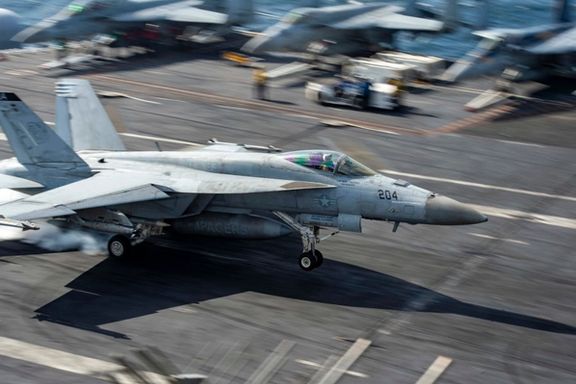Message Delivered To Iran, Biden Says After Strikes On Houthis

President Joe Biden issued a veiled threat to Iran on Friday, hours after the US and Britain struck at dozens of Iran-backed Houthi sites in Yemen.

President Joe Biden issued a veiled threat to Iran on Friday, hours after the US and Britain struck at dozens of Iran-backed Houthi sites in Yemen.
The strike on Houthis Thursday night came after the group shrugged off all warnings and demands to stop attacking vessels in the Red Sea. There were more strikes Friday night, albeit on a much smaller scale, according to US officials.
Five people were killed and six injured in the earlier overnight operation that President Biden said aimed to degenerate the Houthis’ capability to launch more attacks in the Red Sea.
“I don’t think there’s any civilian casualties,” Biden said defending the Friday strikes conducted by warplanes, US Navy destroyers and even submarines, “that’s another reason why it’s a success.”
Asked by a reporter if he had a message for Iran in the light of the attack, Biden said “I've already delivered the message to Iran. They know not to do anything."
Iran and its regional militant proxy forces –from Iraq to Yemen and Lebanon– have been targeting American and Israeli forces or interests for two months, claiming obligation to support Palestinians in the face of Israel’s onslaught on Gaza.
Reacting to the US/UK attack, the spokesman for Iran’s foreign ministry, Nasser Kanaani, said such attacks only “divert” attention from the crimes in Gaza and “ have no result other than fueling insecurity and instability in the region”.
Some countries in the Middle East, including Saudi Arabia, are concerned that US strikes on Houthi capabilities would only aggravate, not deter, the group and lead to an all-out regional war or direct confrontation with Iran.
Asked about such a possibility Friday, President Biden only said “Iran doesn’t want a war with us.”
Biden’s chief spokesperson John Kirby reiterated his words.
“We’re not looking for conflict with Iran,” he said in an interview with MSNBC Friday. “We’re not looking to escalate and there’s no reason for it to escalate beyond what happened over the last few days.”
The second strike early on Saturday, which the US said targeted a radar site, was launched by the guided missile destroyer Carney, which used Tomahawk missiles "to degrade the Houthis' ability to attack maritime vessels, including commercial vessels," the US Central Command said in a statement on X, formerly Twitter.
Media outlets in Tehran affiliated with various regime entities were mostly silent on Saturday morning about the second strike on Houthis and Biden's remarks.
But the Houthis seem to have other ideas.
“All American-British interests have become legitimate targets,” the group’s Supreme Political Council said Friday, as ‘hundreds of thousands’ of Yemenis rallied in the capital Sanaa to show support for Palestinians and condemn the overnight attacks.
Turkish President Recep TayyipErdogan seconded the sentiment.
“It is as if they aspire to turn the Red Sea into a bloodbath,” he said, accusing the US and Britain of using excessive force. “Yemen, namely the Houthis, say they have given and will continue to give the necessary response to them.”
The attack on Houthis in Yemen is no doubt an escalation of the ongoing crisis in the Middle East. But the US and British governments have defended it as a “necessary and appropriate” response to the Houthi targeting of commercial vessels that has all but closed a major maritime route.
Many US lawmakers are not convinced though, especially since their word had not been sought on the matter as required (in their view) by the US constitution.
“The United States cannot risk getting entangled into another decades-long conflict without Congressional authorization,” wrote Rep. Mark Pocan on X. “The White House must work with Congress before continuing these airstrikes in Yemen.”